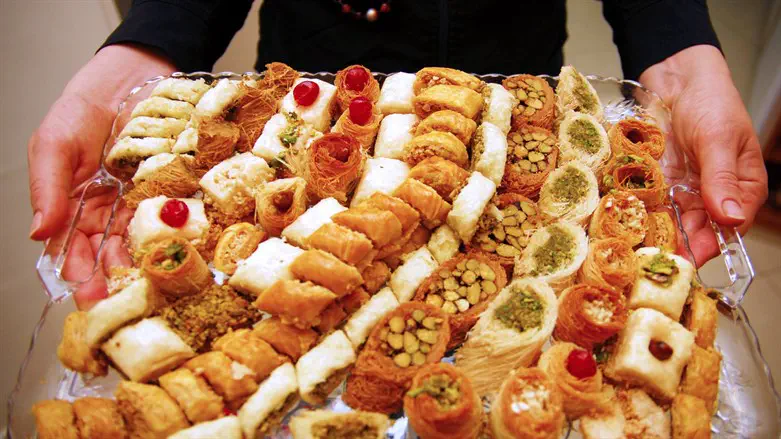
A beloved cultural and religious institution, the festival of Mimouna celebrated immediately after the end of Pesach (or this year after the completion of Shabbat) originates amongst Jews of Moroccan origin but has become embraced by many Israelis of different backgrounds. The juxtaposition of the two festivals is in many ways designed to send a message of hope - that Pesach as a holiday of freedom need not end when we put away the matzah and return to eating chametz.
Twenty years ago, when Israel found itself entrenched in the battles of Operation Chomat Magen (Defensive Shield) that message took on a very personal and deeper meaning for me.
In most cases, when Pesach (and other holidays), draw to a close we are left with a certain feeling of emptiness or even sadness. Over the course of the holiday, we had grown accustomed to spending our days praying, eating together with extended family and traveling the land. And then, almost abruptly, we need to return to our “routines.”
Pesach, with the observance of Mimouna, replaces that sense of emptiness. I, along with other Jews of Moroccan descent (and all those who know join us in celebrating), invite others into our homes in a spirit similar to Seder night and fill our tables with the very best our Moroccan culinary traditions. Zaban, and other delectable cookies join the incomparable moufelta, take us back to our roots. There is no easy way to describe the joy and emotions in our homes as we prepare for this event and come together in prayer and song to Hashem.
As a child, we used to embrace the custom that took place back in Morocco where families would go back and forth among the neighborhood homes. All the doors would be kept open and sometimes we would walk in and find no one inside other than a fully-set table with all the foods that we would feel free to partake in. This was the ultimate communal event and allowed us to rejoice with neighbors and friends before we would eventually go back to our own extended families.
And thus, we would prevent, or at least delay, the sense of letdown that comes with the end of Pesach. Just the opposite – the end of one holiday became the cause for a spiritual high with the onset of a new one. And with that we were encouraged to understand that the sense of freedom of Pesach should remain with us even afterwards.
Twenty years ago, was perhaps the most meaningful Mimouna in my life, specifically because it was the very one I almost wasn’t able to celebrate. Operation Defensive Shield had seen me called up in emergency reserve duty. The seven days of Pesach had been spent mostly in a jeep patrolling the areas around Ramallah. As Pesach ended, our jeep approached the Jewish town of Beit Choron where we waited at the gate for one of the residents to bring us some wine to make Havdallah.
After waiting for several minutes, one of the residents came by and insisted that we come to his home for Havdallah and a brief meal. After brief introductions where he heard that we were from the Yeshiva “Ohr Etzion” he asked if we knew his younger brother, Gadi Ezra. Of course we do, we answered, and we immediately called Gadi. His phone went to voice mail and we left a message.
The next day, tragically, we were informed that Gadi had been killed in battle in Jenin. In a last letter he penned to his fiancé, Gadi wrote that the message that he would want spread in the event of his death was that “One should never despair and always remain joyful,” “Ein Yeush, Tamid Lehiyot B’simcha.”
During those painful moments we were reminded of a tragic reality of Pesach. Freedom is not simply about being free but about the cost and burden that comes with maintaining our freedom. Over history, and particularly in these decades of rebuilding our homeland, we have experienced incredible loss simply to protect the ability to continue to hope and pray that “Next Year in Jerusalem” can become a reality. I remember thinking that this message of continuing to be joyful, what Gadi last wished for, is perhaps the ultimate message behind the holiday of Mimouna.
Twenty years later, we are once again facing a wave of terror similar to the one that brought on Operation Defensive Shield and it’s time to strengthen our belief in hope and joy. To open our doors to others- but far more importantly to open our hearts.
And if we do so, we can rejoice together on this special of days and transform that prayer of “Next Year in Jerusalem” from dream into reality.
Chag Sameach and Tarvichu V’Tisadu
Rabbi Asher Sabag is a member of the Tzohar Rabbinical Council.